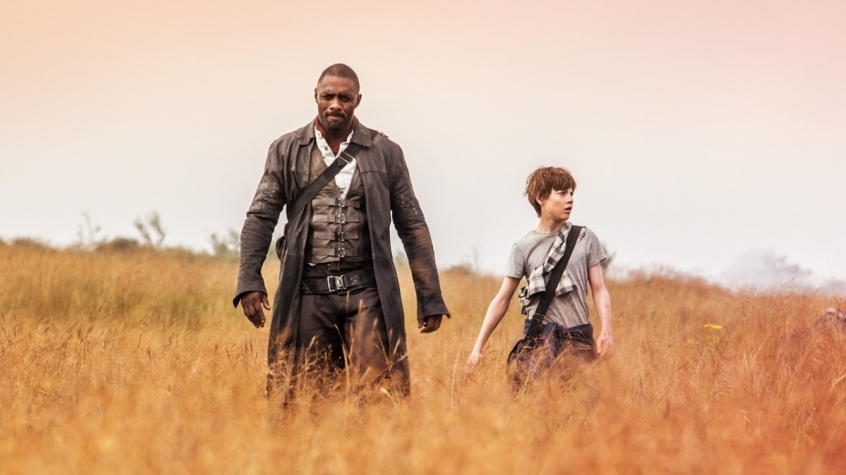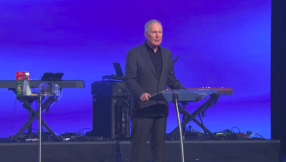
Truly irredeemable villains are mercifully rare. Most movie monsters have some sort of excuse for their behaviour; a bigger baddie behind them, or a dark flaw inspired by their tragic past. It's unusual to find a character who can truly be described as purely evil, except perhaps where the story is lazily drawn. Bad guys normally have at least something sympathetic about them.
In Stephen King's The Dark Tower however, we meet a character who is truly evil incarnate. He's motivated only by destruction, entertained by misery. Nothing can persuade him of another path, and there's no indication that he once wasn't quite so bad. As those of a religious persuasion might understand things, he is essentially the devil.
This character, Walter (Matthew McConaughey) is the driving force in director Nikolaj Arcel's adaptation of King's famous fantasy epic, and like the Christian understanding of the devil, he is attempting to overcome the world with his darkness. His mission: to destroy the universe-guarding tower of the title by harnessing the innocence of psychic children (yes, it's weird, but go with it). When he discovers a particularly powerful boy, Jake (Tom Taylor), he'll stop at nothing to weaponise him, and release a demonic apocalypse into Earth and the various other parallel worlds which overlap it. Only the Gunslinger Roland (Idris Elba) stands in his way, and so begins a familiar race between good and evil, between protector and malevolent aggressor.
It's a story told on the largest possible canvas, and yet by focussing on these relatively few characters, the movie does a good job of hooking us in. The stakes are enormous – throughout we're moments away from Judgement Day – and yet the relationship between Jake and the Gunslinger, two unlikely heroes who've both been robbed of a father, is what we really care about. Although there's a cosmic-level battle going on, this is really a story about fatherhood, and about these two bereaved characters choosing to embrace the fight for what's good rather than allowing the darkness to consume them.
Critics have largely been extremely sniffy about the film, criticising it's over-simplification of the beloved eight-book series which it partly adapts. Fans of those novels are likely to be disappointed, given that the screenwriters including action regular Akiva Goldsman have slimmed the story down to just 95 minutes of screen time. Yet to the uninitiated it does tell a well-structured 'good vs evil' story, and perhaps thanks to King, it is particularly good at illustrating that evil.
One wonders how McConaughey, enjoying something of a career renaissance after his lost romcom years, felt about playing such a truly devilish character as a confirmed Christian. Perhaps his theology helped him to make sense of a man way beyond redemption, and in turn he does a great job of making evil terrifyingly real. Jake first encounters Walter in his nightmares; the character will be visiting a fair few more after this. McConaughey's performance, though horribly dark, is by far the strongest element of the film.
The Dark Tower certainly isn't as terrible as some are suggesting, and as an action-packed sci-fi / fantasy / western / quest movie, I found it entertaining throughout; a bit like a more grown-up version of cults 80s kids movie The Never-ending Story. Theologically speaking, it doesn't attempt to tell the Christian version of the story of light overcoming darkness, but that's not to say it doesn't contain plenty of themes that chime with that understanding. Walter's mission is to help people – as Roland puts it – to 'forget the face of their father', and the way that he speaks shame, anger and even death into the lives of the people he meets is veritably Screwtape-esque. It's a film that reminds you how bad evil can be, and in a world so full of grey, sometimes it's helpful to glance at the darkness in order to remember the importance of the light.
Martin Saunders is a Contributing Editor for Christian Today and the Deputy CEO of Youthscape. Follow him on Twitter @martinsaunders.













